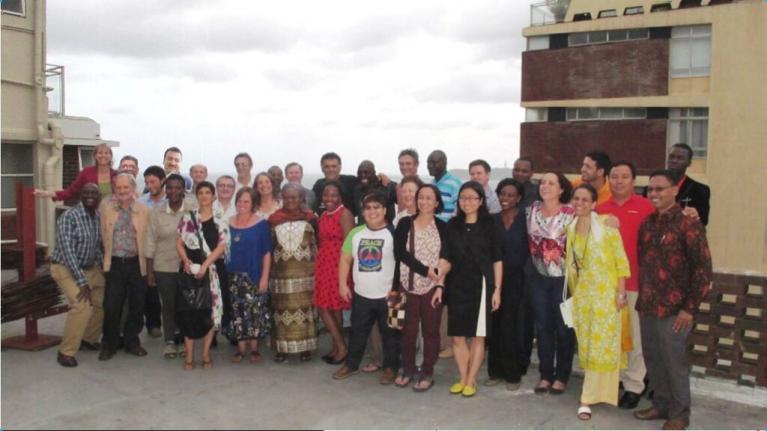Latest Resources

5 December 2023
UPOV-aligned PVP laws impinge on farmer seed systems
We stand united in our commitment to addressing the pervasive push for the adoption of plant variety protection (PVP) laws in Africa, aligned with the Eurocentric International Union for Protection of New Varieties of Plants (UPOV) 1991 model. We continue to declare our unwavering dedication to championing a just and sustainable agricultural future for the […]

22 September 2021
African Social movements rise up against the UNFSS and the African Union’s blueprint for corporat...
On 16 September, African social movements came together to discuss the upcoming United Nations Food Systems Summit (UNFSS), which takes place on the 23 September. On this day, the African Union (AU) will be presenting an African “common position”. As social movements in Africa we reject both the UNFSS and the AU’s position, which allegedly […]

27 August 2021
Guidelines for the Harmonisation of Seed Regulatory Frameworks in Africa: Call for African social...
The African Union (AU) has embarked on a mission towards harmonising seed regulatory frameworks across the continent, beginning with the establishment of a set of Guidelines on seed law harmonisation. The African Centre for Biodiversity, along with other civil society organisations and farmers’ associations from Africa, have actively engaged in the development of these Guidelines. […]

23 August 2021
African social movements demand that AU suspends undemocratic and pro-industry seed and GMO guide...
For over two decades, and in defence of life and democracy, diverse constituencies in Africa have promoted the rights of small farmers and their seed systems, and have expressed and continue to express concern related to the use and governance of modern biotechnology on the continent. We include smallholder farmers, pastoralists, fisherfolk, hunter/gatherers, indigenous peoples, […]

18 October 2017
Farm Input Subsidies and Civil Society’s Position in Mozambique
This statement represents the position of civil society in Mozambique on farm input subsidies.

16 October 2017
Civil society in Mozambique statement on farm input subsidies in that country
This statement represents the position of civil society in Mozambique on farm input subsidies in that country.

18 February 2016
Open letter to UPOV and FAO on the new intellectual property and seed laws in Africa, Asia and La...
The African Centre for Biodiversity, the Network for a GE Free Latin America and JINUKUN – COPAGEN, on behalf of the organisers of a South – South dialogue on intellectual property (IP) and seed laws, want to bring to your attention the declaration that resulted from the Dialogue. This Dialogue was attended by several organisations […]

11 February 2016
Over 57,000 Express Concern with Human Feeding Trials of GMO Bananas
Simultaneous demonstrations in Ames and Seattle highlight controversy surrounding Gates Foundation-funded Transgenic Banana Study at Iowa State University Ames, IA and Seattle, WA: On Monday February 15th, Iowa State University graduate students will deliver 57,309 petition signatures to the College of Agriculture and Life Sciences at ISU while AGRA Watch members deliver the same petition […]

5 January 2016
Declaration on Plant Variety Protection and Seed Laws from the South-South Dialogue
We, participants at the South-South Dialogue, are members of peasant and civil society organisations and concerned individuals from Africa, Asia, Latin America and Europe working on issues of food and seed sovereignty, peasants’ control of seed production and exchange, and biodiversity. We gathered in Durban, South Africa 27-29 November 2015 to share information and knowledge, […]

2 July 2015
AFSA calls on African governments at Arusha meeting to shun protocol that undermines sovereignty ...
Nineteen African nations, members of the African Regional Intellectual Property Organization (ARIPO), began deliberating on the highly contentious draft ARIPO Plant Variety Protection (PVP) Protocol on Monday, 29th June in Arusha Tanzania. Many of these nations are least developed countries, the poorest and most vulnerable countries in the world. If adopted, the Protocol will establish […]
